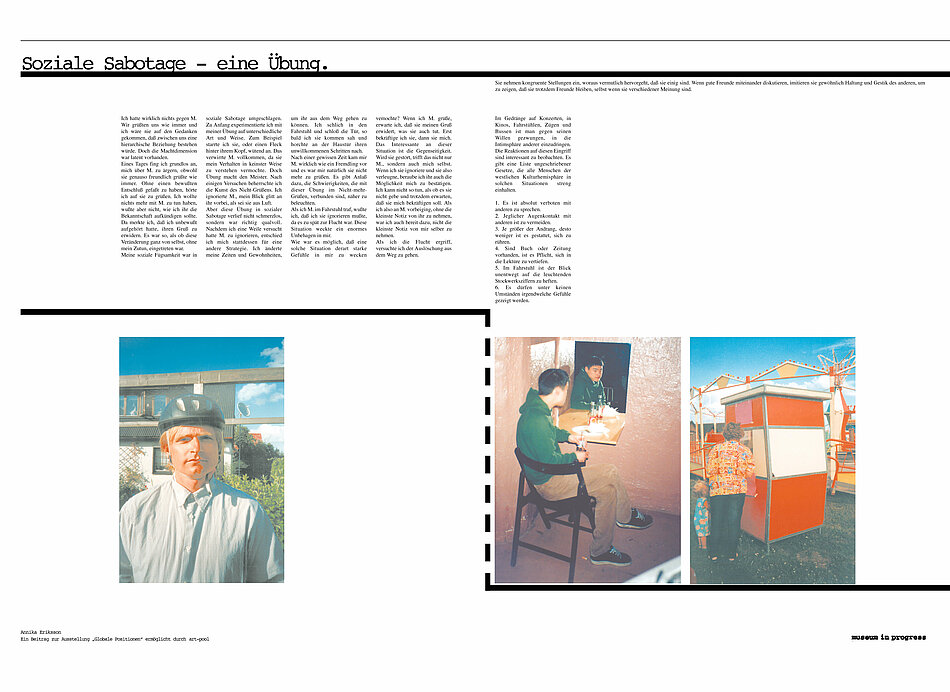Social sabotage – an exercise.
I really had nothing against M. We greeted each other as usual and it would never have occurred to me that there was a hierarchical relationship between us. But the power dimension was latent. One day I started to get annoyed with M. for no reason. Although she greeted me just as friendly as always. Without having made a conscious decision, I stopped greeting her. I didn't want to have anything more to do with M., but I didn't know how to break off my acquaintance with her. Then I realised that I had unconsciously stopped returning her greeting. It was as if this change had happened all by itself, without my doing anything. My social docility had turned into social sabotage. In the beginning, I experimented with my exercise in different ways. For example, I stared angrily at her, or at a spot behind her head. This confused M. completely, as she couldn't understand my behaviour in any way. But practice makes perfect. After a few attempts, I mastered the art of not saying hello. I ignored M., my gaze glided past her as if she were made of air.
But this exercise in social sabotage was not painless, it was truly agonising. After trying to ignore M. for a while, I decided on a different strategy instead. I changed my times and habits to avoid her. I snuck into the lift and closed the door as soon as I saw her coming and listened for her unwelcome footsteps at the front door.
After a while, M. really did seem like a stranger and it was natural for me not to greet her. There is reason to take a closer look at the difficulties associated with this exercise in no longer saying hello.
When I met M. in the lift, I knew I had to ignore her because it was too late to escape. This situation made me feel very uneasy. How was it possible that such a situation could arouse such strong feelings in me? When I greet M., I expect her to return my greeting, which she does. First I affirm her, then she affirms me. The interesting thing about this situation is the reciprocity. If she is disturbed, it doesn't just affect M., but also me. If I ignore her and therefore deny her, I also deprive her of the opportunity to affirm me. I can't pretend that she doesn't exist and still expect her to affirm me. So when I walked past M. without taking the slightest notice of her, I was also prepared not to take the slightest notice of myself.
When I took flight, I tried to avoid erasure.
They adopt congruent postures, which presumably indicates that they are in agreement. When good friends argue with each other, they usually imitate each other's posture and gestures to show that they remain friends even if they disagree.
In crowds at concerts, in cinemas, lifts, trains and buses, people are forced against their will to invade the privacy of others. The reactions to this intrusion are interesting to observe. There is a list of unwritten laws that all people in the Western cultural hemisphere strictly adhere to in such situations.
1. It is absolutely forbidden to talk to others.
2. Any eye contact with others is to be avoided.
3. The larger the crowd, the less you are allowed to move.
4. If a book or newspaper is available, it is compulsory to immerse yourself in reading.
5. In the lift, you must keep your eyes fixed on the illuminated floor numbers.
6. Under no circumstances may any emotions be shown.


